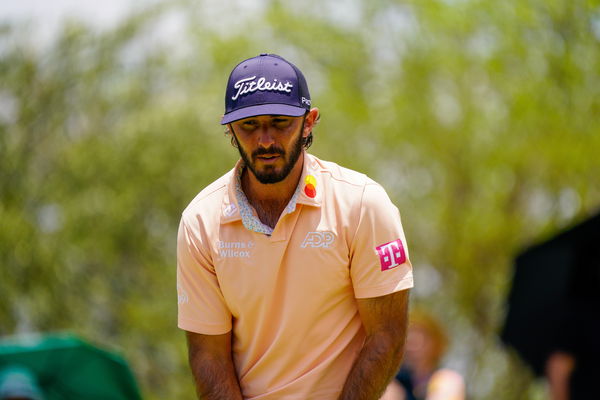
Imago
Credits: Imago

Imago
Credits: Imago
Professional golf at 23 sounds like a dream come true. For Max Homa, it became a parking lot full of grown men crying by their cars.
Watch What’s Trending Now!
The six-time PGA Tour winner recently teamed up with Sam Heung Min Golf for a casual 2v2 match at TPC Scottsdale’s Champions Course. What started as lighthearted banter turned unexpectedly heavy when Homa shared a memory that still haunts him over a decade later.
During the November 14, 2025 YouTube video, the conversation shifted to Homa’s second stage Q-School experience in December 2013. He was fresh off winning the NCAA Championship and turning pro. Golf felt exciting. Everything seemed possible. Then reality hit hard.
Homa played alongside a mid-40s competitor who had never made it to the final stage. The man had three kids. He talked about real-life stuff. The weight of what was at stake became impossible to ignore.

Imago
Nedbank Golf Challenge 2024 Max Homa USA on the 3rd green during the 3rd round of the Nedbank Golf Challenge 2024 held at Gary Player Country Club in Sun City, South Africa. 07/12/2024. Picture Thos Caffrey / Golffile.ie All photo usage must carry mandatory copyright credit Golffile Thos Caffrey Copyright: xThosxCaffreyx *EDI*
Sunday came. Homa qualified with a tied-for-16th finish at Deerwood Country Club in Kingwood, Texas. He walked through the parking lot afterward. That’s when he saw something that changed his perspective forever.
“Grown men are like crying by their cars,” Homa revealed during the match.
His reaction was immediate and visceral. He turned to his caddie, Joe Greiner, with a simple message.
“Let’s sign this card and get the f— out of here. Like this is too heavy for me.”
The moment captured everything brutal about professional golf qualifying. These weren’t casual weekend warriors. They were skilled players who’d invested thousands of dollars and countless hours chasing a dream. Research revealed that professional golf creates unique psychological pressures: 51.7% of Challenge Tour players experience distress symptoms, over three times higher than the general population.
Homa advanced to the final stage that year.
He tied for sixth at 23-under-par, earning Web.com Tour status for 2014. But the parking lot image stuck with him. Those tears represented the crushing gap between having the game and performing under pressure.
Years later, Homa would understand that pain firsthand. He lost his PGA Tour card after the 2015 season, finishing 163rd in the FedEx Cup standings. He lost it again in 2017, making just two of 17 cuts and earning only $18,008. The young player who wanted to escape the heaviness became the veteran living it.
His evolution mirrors a broader shift in golf’s approach to mental health. Homa now works weekly with sports psychologist Dr. Bhrett McCabe. He’s even publicly opened up about his struggles.
“I’ve always been determined, but I’ve never been super positive. The negativity was corrosive,” he admitted in previous interviews.
The invisible wall between good and great
The conversation at TPC Scottsdale revealed why those Q-School competitors were crying. Later in the video, the group discussed the mental gap separating tour players from skilled amateurs. They acknowledged that breaking down individual skills, the differences seem small. But tournament pressure changes everything.
Homa would finish 20 under while equally talented players struggle to make cuts. The mental aspect becomes the primary differentiator. That’s what made the parking lot scene so devastating. Those men had the physical game. The psychological toll broke them anyway.
Currently ranked 128th in the world, down from a career-high fifth in April 2023, Homa knows the struggle continues. He’s endured a brutal 2025 season with eight missed cuts in 20 starts. Yet he keeps talking about mental health openly.
The 23-year-old who fled the parking lot has become the 35-year-old who stays and discusses the pain. That transformation matters.
Professional golf’s mental toll remains one of sport’s least discussed realities. Homa’s willingness to share both sides of the story gives voice to golf’s silent crisis.
Those grown men crying by their cars weren’t weak. They were human. And sometimes, that’s the heaviest truth of all.

